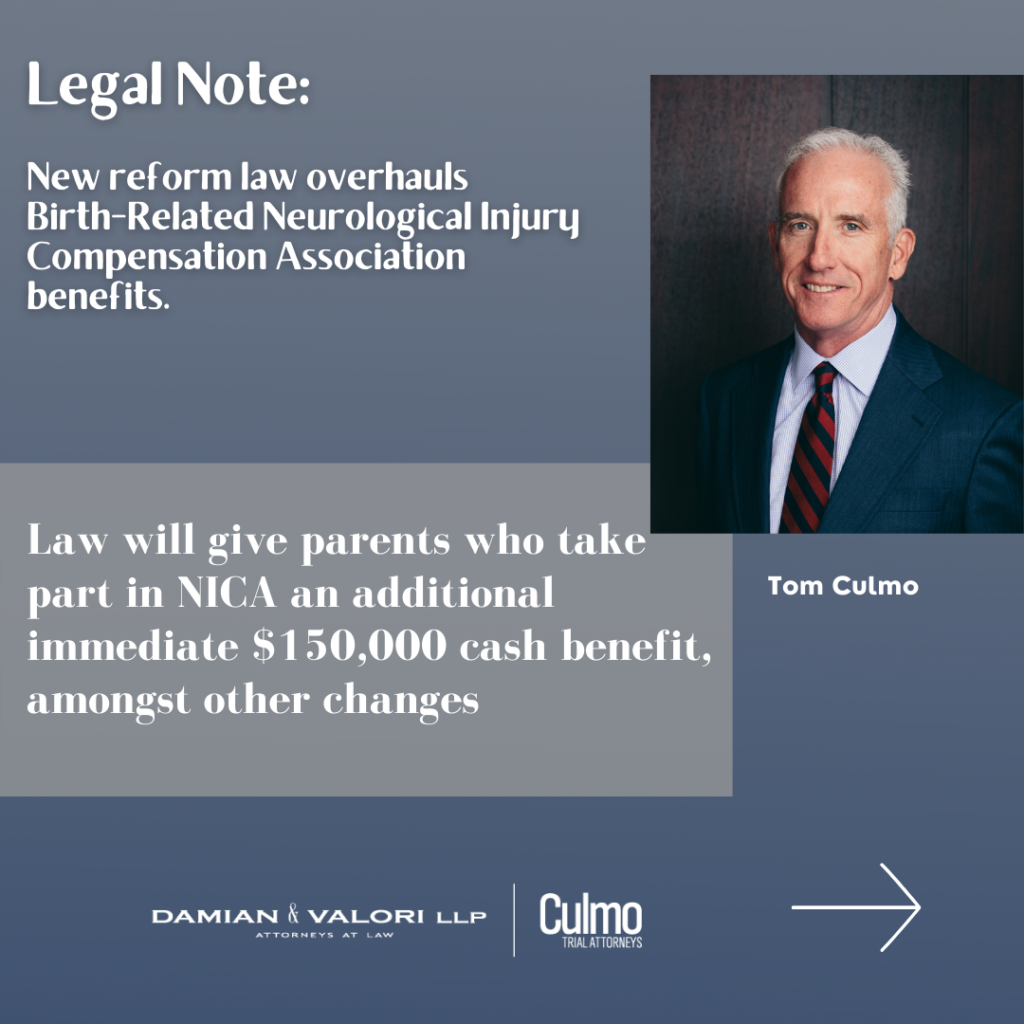
Recently, Florida Governor Ron DeSantis signed into legislation a bill that overhauls Florida’s Birth-Related Neurological Injury Compensation Association, or NICA, a program that provides lifelong care for children born with catastrophic brain damage. The program provides funds to parents so they can manage the care of children born with severe physical and cognitive disabilities as the result of oxygen deprivation or spinal cord injury at birth. NICA was created to protect obstetricians from costly legal judgements against them by severely restricting the parents of certain brain-damaged children from suing them or the hospital where their child was born, thereby lowering malpractice liability insurance premiums. Since its founding in 1988, NICA has generated nearly $1.5 billion in assets through the investment of assessments paid by doctors and hospitals. In recent years, families of the disabled children have reported that NICA was denying claims, and making it difficult for them to obtain the funds to cover the expenses for their disabled children.
Why the law is important
Effective immediately, this bill will give parents who participate in NICA an additional immediate $150,000 cash benefit. The law also provides the provision that the association shall administer the plan in a manner that “promotes and protects the health and best interests of children with birth-related neurological injuries” and gives a commitment to families of disabled children that NICA will cover the costs of wheelchairs, medication, therapy, and other services for severely disabled children.
In addition to the increase in the one-time payment, the law provides:
- A $10,000 annual mental health benefit for families.
- An enhanced death benefit of $50,000 for death expenses, an increase from $10,000.
- Representation on the board of directors by a NICA parent and an advocate for disabled children, and a six-year term limit for all board members.
- An increase in the lifetime “housing assistance” and home modification benefit from $30,000 to $100,000.
- Money for wheelchair-accessible vans and a “reliable method of transportation” for the life of children in care.
- A code of ethics for administrators and board members.
- An appeal process at the Division of Administrative Hearings, where NICA petitions are filed, for families to dispute NICA denials.
